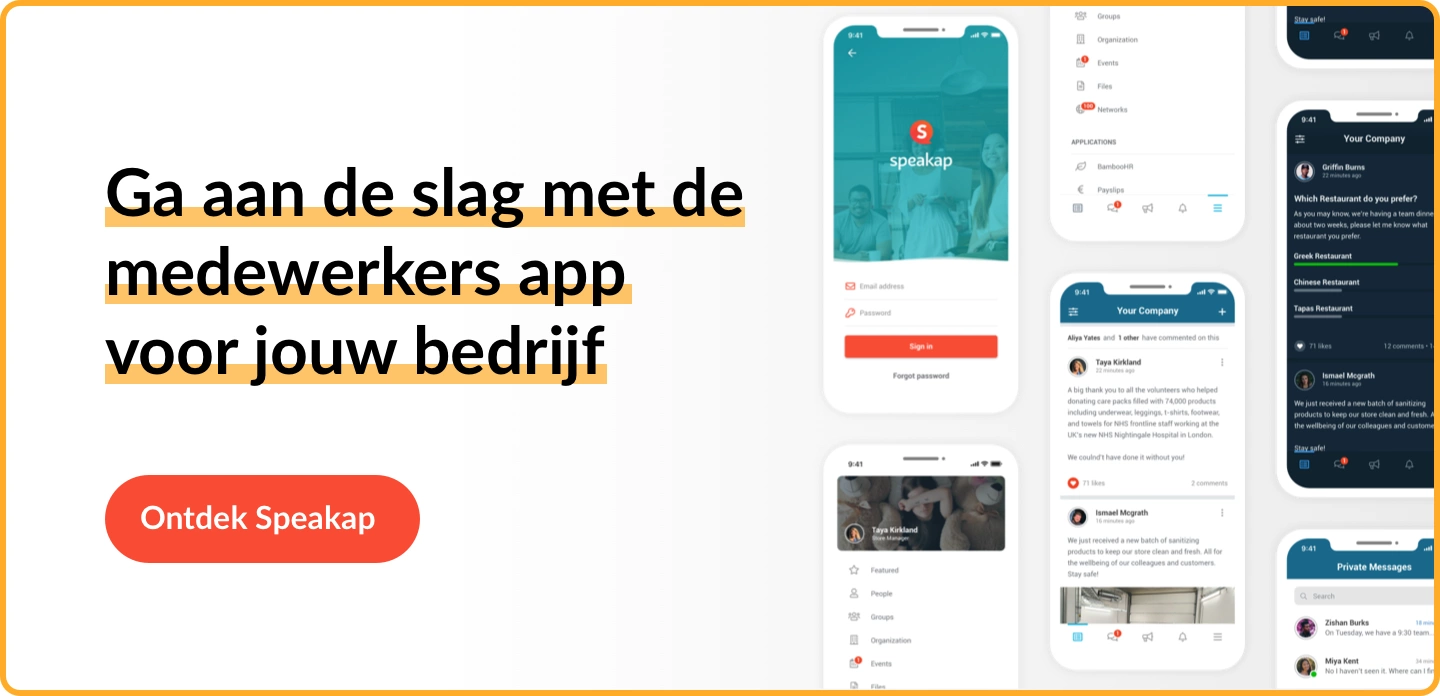How Can Internal Communicators Drive Business Growth?
What is the role of an internal communicator in relation to business growth? What initiatives can internal communicators take to contribute towards the company’s success?
We caught up with Daren Jennings, Chief Commercial Officer at Speakap, to hear about the importance of internal communication on driving business growth.
What do you think is the role of an internal communicator in relation to business growth?
I think internal communications has a huge role to play for a business' growth. One of the challenges that a lot of companies face is that people just don’t know what's happening within the business, and executives are the ones who are responsible for setting the strategy while the employees themselves are the ones who are responsible for executing it. And if you have a disconnect between those two things that people don't know what's going on, then you can have a hard time executing on that strategy.
So an internal communicator has a really good opportunity to help connect the dots between the overall company strategy to what's actually going to have to happen at the execution level by the employees, which could lead to business growth.
What initiatives can internal communicators take to contribute towards the business growth?
I think the role of an internal communicator is critical for an organization's overall success. If you think about just a handful of examples for DE&I is a major initiative for a lot of organizations today where they want to have a diverse set of employees and they want to actually help cultivate and grow those employees within the organization so they have a more diverse set of leaders of tomorrow.
Something like an employee app, for example, can be really important for that because we're having a more diverse workforce than we’ve ever had before. Not just by race and ethnicity and gender, but also in terms of age groups. You have people from boomers down to Gen Z right now that are all actually comfortable using apps.
I know there's this concept in the market that well the older generation is not necessarily comfortable with this, but I guarantee they have Facebook, they're probably looking at other social media apps and that's how they're used to consuming information.
And if we can take something that they're already using in their personal lives and apply a professional spin to it, this is how you're actually going to be able to communicate with a diverse set of employees, that can lead to business growth.
So think about what your employees are dealing with every single day. They’re people just like us and they’re bombarded with messages from external digital signage, from billboards, from chats with their colleagues, to chats with their manager.
Having a single place that they can rely on as a source of information on an employee app is such a great way to shuffle out the noise or get rid of a lot of that noise in a way that's going to be humanizing to them. It's personal to them, it's relevant for them, and it's going to drive overall engagement.
Can you share best practices of internal communication initiatives?
Some great examples of initiatives that have worked really, really well is if you think about how your employees who are consuming the information that you're publishing, they don't want to be bored with the same old things.
They don't like long form content. So if you think about that, especially within context of an employee app, you want to think about having bite sized bits of information, some of the challenges that organizations face is if they're publishing really long newsletter content and they're actually trying to shrink that down into a very small mobile screen, it doesn't really work that well.
So some of the initiatives that have worked really well, taking that long form content, splitting it into bite sized pieces and all of a sudden you have a campaign that you can use for your internal employees in such a way that it's actually going to drive overall usage because they're going to continue coming back to consume that information.
Another example that people love to engage with is video content. So tapping into leaders and asking them to do just very short, authentic videos that might be 20, 30 seconds long, maybe even a minute long, where they're talking about something that's really important to the company. They can publish that directly to an employee app for their workforce to consume. That's a much more engaging way to consume the information, but it also humanizes your leaders to people that may not have a lot of direct contact with them.
So one of the downsides also about having so many tools and so many messages is that oftentimes people don't know where to go to get the information they need to do their job well or just the information they have to have, like paystubs or training, for example. It can have a negative impact on business growth.
If you have a really good integrations engine within your employee app so you have that first off destination, people know no matter what, I can come here, I can get the information I need, but I can also find the information that exists maybe in another system like payroll or training, for example all within an employee app.
Do you have any other tips for internal communicators?
So I think another thing that internal communicators like to do and employees themselves, they crave authenticity in the types of messages that they're consuming.
So I think we have a tendency as internal communicators to vet everything thoroughly and make sure it goes through multiple revisions and rewrites and legal has to review it. These are your employees, your colleagues, people that you see every single day or often enough. I think it's okay to be a bit more authentic and unscripted in your communications, doing a lot of short content updates, like maybe it's something from a business leader who says, ‘I had a meeting with our biggest client today and these are the three things they think will drive business growth’. Think about that.
I mean, these are the types of messages that are really authentic, that resonate with people that don't necessarily have to go through the sanitization and the scrubbing process. Be authentic with your employees and they’ll respect you for it.


